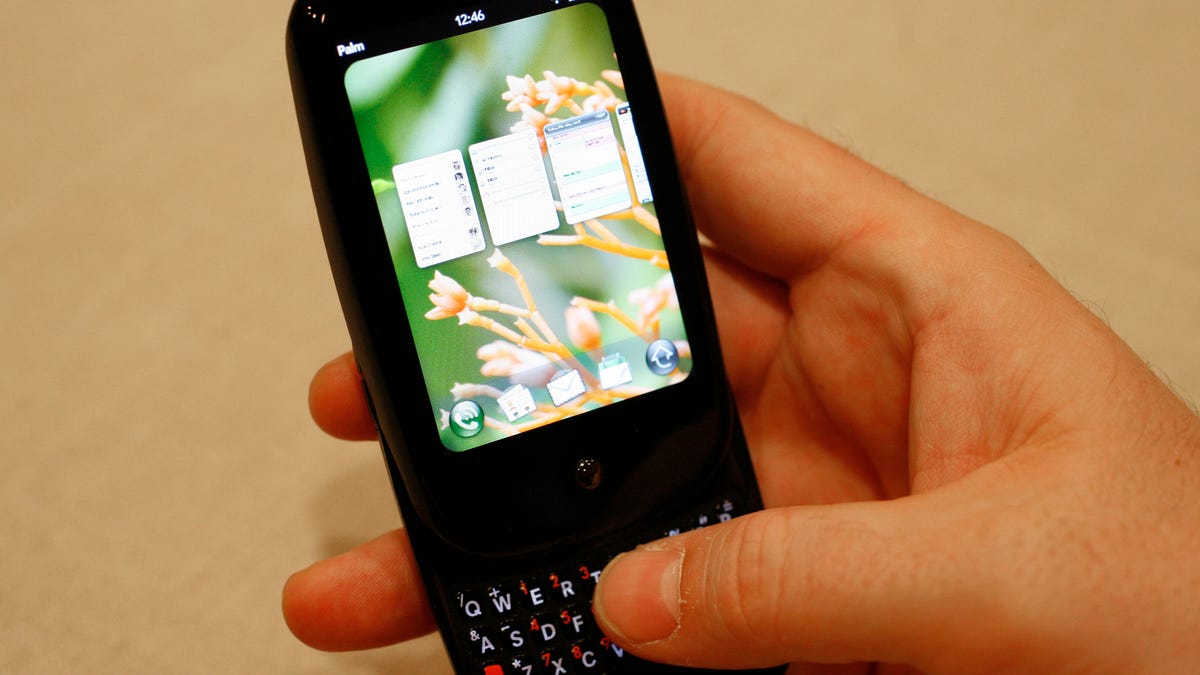A failed 'iPhone killer' is Qualcomm's new weapon against Apple
The chipmaker owns several patents related to Palm and webOS, and is accusing the iPhone X of copying its user interface.

The Palm Pre was one of many purported "iPhone killers" that never stuck. But it still has its fans.
The legal battle between Apple and Qualcomm just went retro.
The same day that Apple filed a countersuit against Qualcomm, alleging that the chipmaker illegally used Apple battery management technology in Snapdragon processors that went into rival phones , Qualcomm filed three new complaints relating to 16 additional patents against Apple, including asking for the iPhone X to be banned.
But Qualcomm is bringing up a blast from the past in its complaint: the cult classic Palm Pre.
It turns out, Qualcomm in 2014 purchased several patents from Palm, including technology relating to its webOS operating system and user interface. While the Palm Pre, which debuted in 2009 as the purported "iPhone killer," never met the initial hype, Qualcomm is bringing it back as a weapon against Apple.
This is the latest wrinkle in the escalating fight between the two tech giants. Apple is one of the largest consumer technology companies in the world, with arguably the strongest brand in the industry, while Qualcomm is the world's largest supplier of mobile chips.
At the heart of this fight is a disagreement over how much Apple should pay Qualcomm for technology licenses. Apple believes the fee should be based on a percentage of the Qualcomm modem that goes into the iPhone , while the chipmaker believes the percentage should be based on the value of the entire phone.
Qualcomm alleges that the new iPhone X, which offers users the ability to bring up different windows of apps with a swipe, copies the interface used by the Pre. Qualcomm cites tech sites The Verge and TechCrunch's commentary that compares the iOS operating system to the Pre's "card-based multitasking system."
Other Palm patents involve the ability to autofocus the camera by touching the screen, a simplified single power button and the ability to answer a phone call with a text message.
The fresh complaints support Qualcomm's argument that Apple uses more of its technology than just the modem and that other aspects of the iPhone are helped by Qualcomm innovations.
Qualcomm declined to comment beyond the filings.
An Apple spokesman declined to comment beyond its own countersuit.
Palm has been on a curious journey to get to this point. The company was originally purchased by Hewlett-Packard, which failed to use webOS as a platform for its own consumer products. LG ended up with webOS as a platform for its televisions, while Chinese TV and phone maker TCL purchased the rights to use the Palm name.
Tech Enabled: CNET chronicles tech's role in providing new kinds of accessibility.
Logging Out: Welcome to the crossroads of online life and the afterlife.

